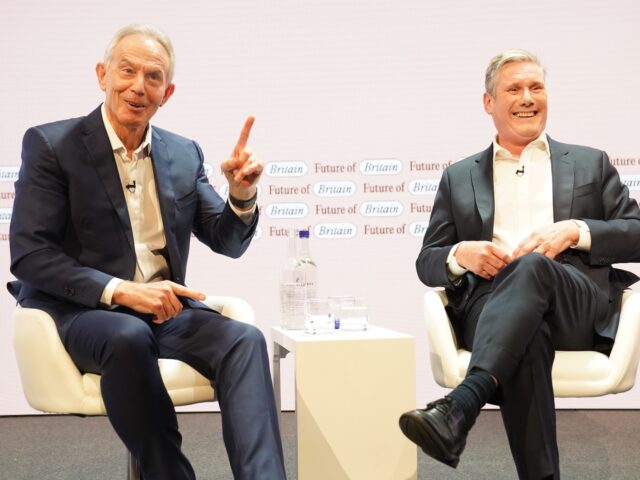Unhealthy foods should be taxed by the government in order to shape the decisions of poorer people and reduce the strain on the National Health Service, former Prime Minister Tony Blair said this week.
The opposition to the “nanny state” is small in the UK, Tony Blair surmised, and therefore the government could get away with imposing regressive taxes on so-called junk foods similar to the smoking ban in indoor public spaces imposed when he served as prime minister in 2007.
The former Labour Party leader argued that because of Britain’s socialised medical system, the government would be justified in trying to force people into making better decisions with their health, despite such measures disproportionally impacting people on the lower end of the economic spectrum.
“We’ve got to shift from a service that’s treating people when they’re ill to a service that is focused on well-being, on prevention, on how people live more healthy lives,” he told The Times of London.
“You can’t run a modern healthcare system where people are going live much longer unless they take some responsibility. You’ve got to help them do that.
“The way of helping them do that, particularly with poor families, is to create the circumstances in which [they can choose healthier food].”
Blair is not alone in pushing for more nanny state regulations on the public, with former Prime Minister Boris Johnson doing a u-turn in office and rejecting his previously libertarian leanings after being hospitalised with the Chinese coronavirus, which he has claimed was made worse by his own weight issues.
Although it has yet to come to fruition, in 2021, Johnson reportedly backed government plans to introduce a Chinese-style social credit score app that would reward families on the basis of their purchasing habits at the grocery store, with “loyalty points” awarded for those who purchased “healthier options” such as fruits and vegetables.
Nanny State Britain: Boris Johnson to Introduce Junk Food Credit Score App https://t.co/oyb4zguCNw
— Breitbart London (@BreitbartLondon) July 26, 2021
While even Blair has not supported such a radical idea, the former Labour PM has been a leading advocate for the introduction of digital “health passports”.
“You need absolutely top-quality national health data infrastructure. All patients should have a personal health account, or electronic health record, whatever you want to call it,” he said.
“The [health] data is a massive national asset,” Blair continued. “That data allows us to develop a life science industry that is already up there with the best, and could be world-beating. So it’s got enormous economic implications as well for the country.”
Blair, who dismissed privacy concerns about such an infrastructure, earlier this year called for international “digital infrastructures” to be put into place to track who has or has not been vaccinated.
Speaking at the World Economic Forum’s meeting in Davos, Blair predicted that there would be a “slew” of new “injectables” introduced over the next few years, and therefore governments should be able to monitor who has been vaccinated on the grounds of public health.
Shortly following the emergence of the Chinese coronavirus, his think tank, the Tony Blair Institute for Global Change, repurposed itself to solely focus on the virus, dispatching teams to “embed” themselves in governments around the world. The think tank argued for “dramatically increased technological surveillance,” as they claimed it would be “a price worth paying” to stop the virus.
Ex-PM Tony Blair Brands the Unvaccinated as ‘Idiots’ https://t.co/8u8hU8b9Ci
— Breitbart London (@BreitbartLondon) December 23, 2021

COMMENTS
Please let us know if you're having issues with commenting.